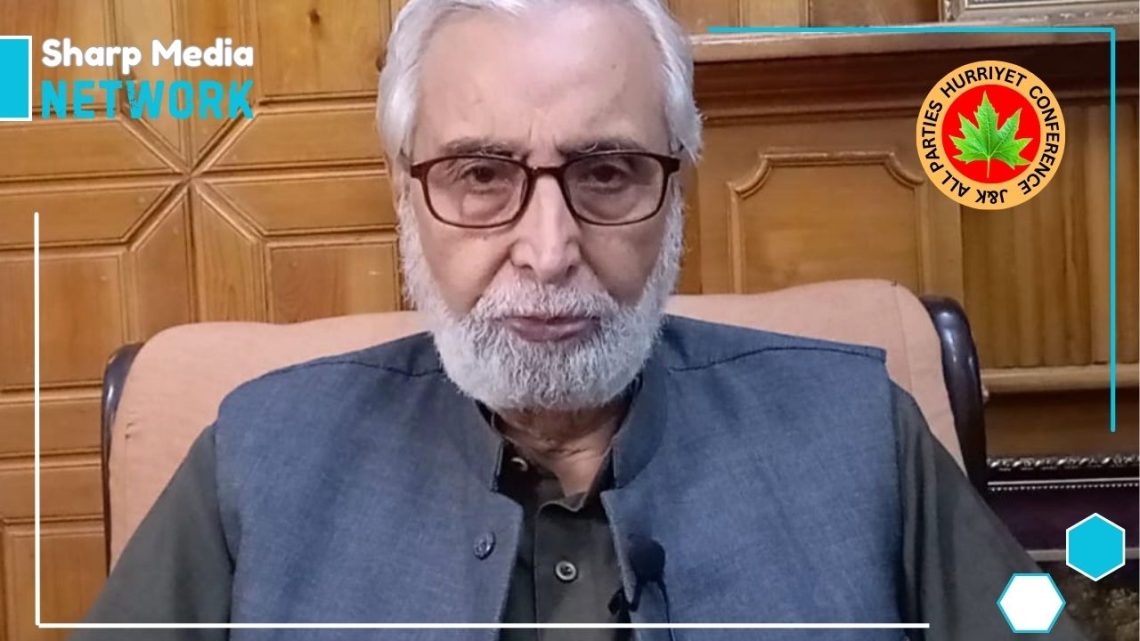
Kashmiris Resist India’s Sinister Plot to Rename IIOJK: Rehmani
January 3, 2025Can the cultural fabric of IIOJK survive India’s relentless drive to erase its identity?
Muhammad Farooq Rehmani, a senior leader of the All Parties Hurriyat Conference Azad Jammu and Kashmir chapter, has vehemently condemned Indian Home Minister Amit Shah’s attempt to rename Indian Illegally Occupied Jammu and Kashmir (IIOJK) after Maharishi Kashyap. This renaming effort is seen as part of a broader campaign to rewrite the region’s history and reshape its identity through the lens of Hindutva ideology. In a statement from Islamabad, Rehmani described this move as an outright assault on IIOJK’s longstanding secular and non-communal heritage, warning that Indian leaders should keep their religious fervor and mythology confined to their own temples and shrines.
Rehmani underscored that India’s current rulers, driven by Hindutva nationalism, are seeking to impose Hindu mythology on the Muslim-majority region of IIOJK. This is not merely a symbolic gesture but a calculated attempt to dismantle the rich cultural and religious identity that defines the region. The ancient name of Kashmir, steeped in thousands of years of history, has never been a point of contention between Hindu or Muslim rulers. Instead, it has stood as a beacon of unity, reflecting the coexistence and mutual respect that once characterized the area.
The Hurriyat leader expressed grave concern over how Indian leaders manipulate historical narratives, distorting facts to stir division and gradually erase Islamic influence from the valley. By invoking misleading references and distorted interpretations of the past, Indian rulers aim to sow discord among communities and uproot Kashmir’s Islamic identity. Rehmani criticized the hypocrisy of those who venerate gods, demons, animals, and mythological figures, yet exploit these beliefs to justify political maneuvers that exacerbate tensions and threaten IIOJK’s stability.
In his statement, Rehmani called upon political parties, community leaders, and civil society—both Muslim and non-Muslim—to recognize the dangers posed by India’s divisive agenda and resist these efforts to safeguard Kashmir’s legacy of religious harmony. He highlighted the importance of unity in frustrating India’s broader plan to alter the sociopolitical landscape of the region through cultural erasure.
Furthermore, Rehmani issued an urgent appeal to the United Nations Secretary General, urging international intervention to pressure India into abandoning its attempts to rechristen IIOJK. He stressed that renaming IIOJK is not a mere administrative decision but part of a dangerous trajectory aimed at erasing the region from global consciousness, thus stripping it of its unique identity and historical significance.
Rehmani’s statement reflects the growing alarm among Kashmiri leaders and communities over India’s aggressive policies in the region. The ongoing attempts to rewrite Kashmir’s identity not only threaten local traditions but also risk igniting further unrest in an already volatile area. His call for unity and international awareness underscores the urgency of preserving IIOJK’s multicultural and multi-religious heritage, which remains under continuous threat.

